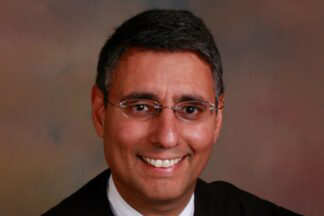With the specter of a changing climate looming over humanity’s future, businesses have started to expand their definition of core concepts like “profit” and “losses” to include impact on the environment.
Wioleta Olczak has spent her career trying to better understand what this new world will look like.

“I remember being at a conference hosted by one of the big four accounting firms, and they were saying ‘this is a jungle,’” Olczak says. “Even auditing firms were struggling in how to quantitatively evaluate this stuff.”
Olczak conducted extensive research into how accounting can properly account for businesses’ impacts on the societies in which they operate.
You earned your bachelor’s and master’s degrees from Purdue and then a doctorate from Central Florida. What made you want to come to Marquette?
I heard about how Marquette had a really good culture. A couple of my colleagues came out to Milwaukee for a presentation and told me that it would be a good fit. The accounting department is really close-knit and intimate. Marquette feels like home, which I really appreciate.
What is your research focus?
I’m doing a slew of research in the sustainability area. One of the things I’m looking at from a couple of different angles is how sustainability reporting impacts managers’ budgeting decisions. I’m also researching companies’ reporting practices and what impacts decisions on the information they’re disclosing.
What does the research landscape in this sector of accounting look like?
There are basically two streams of literature: there’s the behavior side, which looks at individuals’ decision-making, and then there’s the archival side, which is more adding up numbers and looking at financial data sets.
I’m more on the behavioral side. I want to see how individuals perceive sustainability and behave towards different metrics or approaches.
How would you characterize the attitude of the companies you’ve interacted with toward sustainability?
The U.S. is a bit behind Europe in this regard, but we’re getting better. We’re starting to buy into the approach of a triple bottom line, which considers a company’s impact on the planet and other people, instead of just their profits. Sustainability is now becoming a part of everyone’s operations, and you can’t disentangle that. We’re still far off from where we need to be, though.
What are some of the attitudes and cultural norms that keep this mindset shift from happening as quickly as you think it should?
Some individuals and companies are all about wealth maximization and don’t really care about environmental, social and governance factors. There are definitely people out there who haven’t seen the value of sustainability yet.
I talked before about the triple bottom line, but right now, there’s still a mentality of that bottom line, where all you care about as a business is your profits. There must be a shift to that more holistic view.
Do you find that students have a baseline understanding of what sustainability is or do you have to introduce the concept to them?
It depends on the type of student. For my graduate-level course, they understand what it is because they’ve gone through several other courses where they get a flavor of sustainability.
For undergraduate students, they may know about it, but they don’t know exactly how it impacts operations and company financials. I wouldn’t expect that kind of knowledge for a sophomore-level course.
How much of your research do you bring into the classroom? Are you talking to them about the Sustainability Accounting Standards Board (SASB) at all?
My research predominantly looks at SASB, but if I discuss sustainability in my course at all, I mention it very broadly. I’m hoping eventually accounting can build a course around sustainability, but we still need more research and time to understand the implications of ESG in practice.
The College of Business Administration’s motto is “Business with Purpose.” What is it about that mission and about the university’s values that resonates with you?
Marquette really offered me the opportunity to do what I’m passionate about and never pressured me to do anything differently. That’s what Marquette stands for; being the difference and doing what excites you. I knew my department would stand behind me on that.
What advice would you like to share with Marquette students?
Sometimes, I think students put a lot of pressure on themselves and I want them to know that it’s OK to enjoy the ride. A lot of them have such high expectations of getting an A all the time, and I don’t want them to think that the quantitative outcome is all there is to care about.
It’s more than just a grade. It’s about you, as an individual, developing good traits. Are you persistent, are you understanding, are you empathetic? When I meet and advise students, I always tell them it’s fine if you don’t get an A. It’s more about you as an individual.


